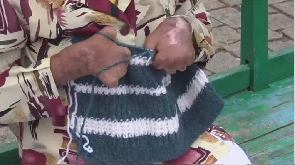The National Leprosy Central Programme (NLCP) of the Ghana Health Service (GHS) has revealed a trend of new cases of leprosy among children in the country.
The NLCP stated in an article published in the Wednesday, February 15, 2023 edition of the Ghanaian Times Newspaper that over the last five years, at least 200 new cases of leprosy have been recorded in the country each year.
The NLCP further indicates that, as of September last year, 221 new cases of leprosy had been reported, of which seven involved children. Also, all 16 regions of Ghana were endemic for leprosy, although the Upper East and Upper West regions reported the highest number of new cases annually.
Cited in the article, the Programmes Manager of NLCP, Dr. Benedict OkoeQuao, is quoted as saying that,
“This tells us that transmission is ongoing and we are all at risk. The only luck is that a lot of us have strong immunity and our body naturally fights the organism; else we would have had a huge problem on our hands,” he said.
According to him, the risk of spread among the population has resulted in the revision of the Programme control strategy, which further aligns with the World Health Organization (WHO) vision to ensure that countries all over the world declare “Zero Leprosy” by 2030.
“Therefore, in line with the new NTD roadmap, 2021-2030, the international health organization targets that in the next seven years, there will be zero-leprosy infection, zero disability and zero-stigma and discrimination associated with persons diagnosed with leprosy,” he noted.
While these objectives are achievable, Dr. Quao, admitted that stigma and discrimination against persons diagnosed or suffering from the effects of leprosy could be the greatest hurdle to overcome.
He said a lot of cruelty meted out to patients are based on myths, misconceptions and low public knowledge about the disease.
“For instance, hugging someone cured of leprosy won’t make you get it. Most of the people with disability, especially, the clawed fingers and toes are cured. They don’t have the disease but the claws is a disability and may remain,” he explained.
He, therefore, stressed on the need for extensive public health interventions about the disease, emphasizing that, presently, there is a need for the establishment of the Public Health Emergency Fund (PHEF), which could help provide sustainable investment and funding into leprosy interventions.
“Currently, we have funding to administer rifampicin in only six regions and that is from foreign donor organizations. If you suspect a case now, you need to send in logistics to do tracing, among other investigations. But at whose cost?” he questioned.
He added, “If we have a dedicated fund where the or Ghanaians could contribute to regularly, we could tap into it to implement preventive measures against such public threats.”
PI/WA
Health News of Thursday, 16 February 2023
Source: www.ghanaweb.com

















